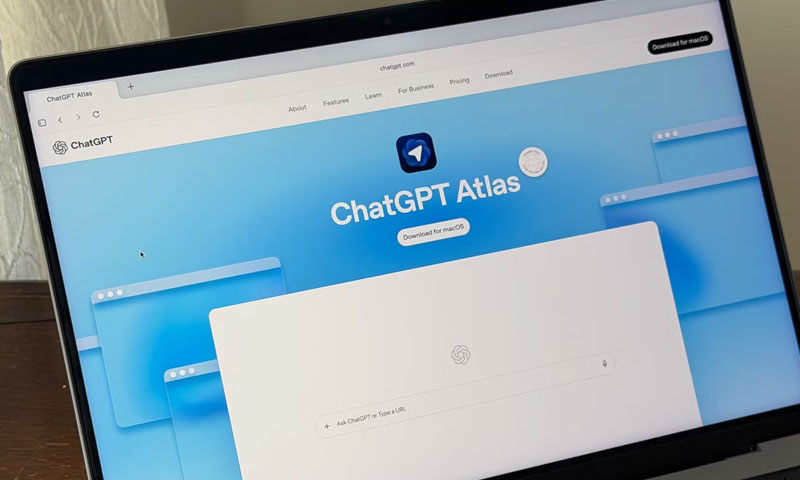- Web Desk
- 2 Hours ago
ChatGPT Atlas could redefine how people search and surf online
-

- Web Desk
- Oct 22, 2025

WEB DESK: On Tuesday, the company unveiled ChatGPT Atlas, a web browser built directly around its popular AI chatbot. The new browser could fundamentally change how users explore the web and potentially threaten Google’s long-standing dominance in online search.
A browser that thinks for you
Atlas looks much like a standard browser at first glance, but it carries a powerful difference: ChatGPT is built into every page. With a simple “Ask ChatGPT” button on the top corner, users can instantly query, summarise or act upon whatever they are viewing. It means no more copying and pasting text between tabs, as ChatGPT follows along, ready to assist.
The browser’s “agent mode” takes this further. In this mode, ChatGPT can perform tasks like booking flights, editing documents or shopping online, all on behalf of the user. OpenAI says Atlas is also designed to learn user preferences through memory, gradually becoming more personalised over time.
“AI gives us a once-in-a-decade opportunity to rethink what a browser should be,” OpenAI CEO Sam Altman said during a livestream.
A real threat to Google’s empire
The timing of the launch has not gone unnoticed. Alphabet, Google’s parent company, saw its stock fall more than 2 percent on the same day, a drop that followed OpenAI’s announcement. While Alphabet’s shares have climbed over 35 percent this year, the sudden dip reflects growing investor unease about whether OpenAI’s innovations could erode Google’s dominance.
Google’s Chrome browser remains the world’s most used, with more than 3 billion users. But the company has already started integrating its own AI, Gemini, into Chrome, an effort many analysts now see as a defensive response to OpenAI’s rise.
The competition is intensifying. Perplexity AI has also launched its Comet browser, while Microsoft continues to push AI features in Edge. Yet OpenAI’s Atlas stands out because it combines ChatGPT’s conversational intelligence directly with browsing, giving it a level of context and control that rivals currently lack.
The next chapter of the internet
For years, web browsing has been about typing queries, opening tabs and scanning through links. Atlas could change that completely. Instead of searching, users might soon be asking their browser to do things for them, from finding a source to writing an email or even purchasing a product.
This shift poses a major challenge to Google’s core business of advertising. If users no longer visit traditional search pages or see ads, it could cut into the billions Google earns from search traffic.
OpenAI’s Atlas is initially available for macOS, with Windows, iOS and Android versions on the way. The browser is free for everyone, though the “agent mode” feature is reserved for paid ChatGPT subscribers.
As Alphabet prepares to announce its quarterly earnings on October 29, investors will be watching closely to see how the company addresses this emerging threat.
For now, one thing is clear: browsing may never be the same again. The launch of ChatGPT Atlas marks a turning point where the internet begins to think and act alongside its users.




